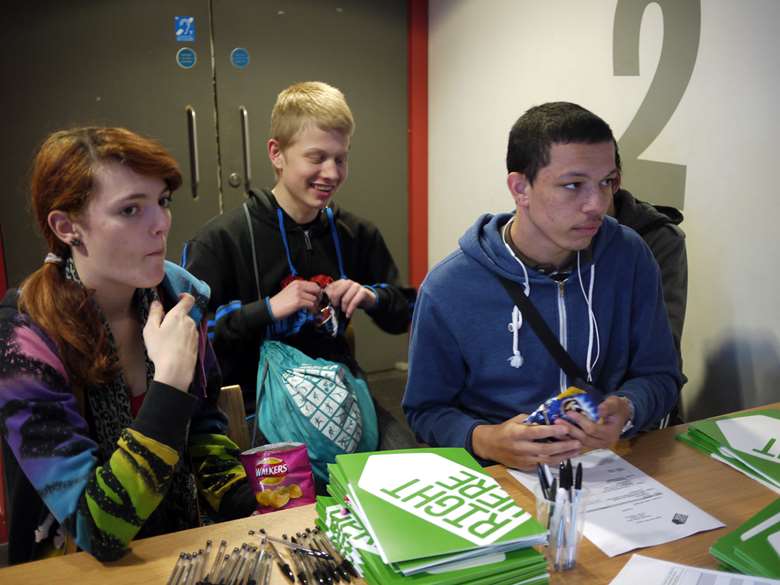Participation in Action: Youth-led film shows value of mental health project
Gabriella Jozwiak
Tuesday, June 25, 2013
Young people become filmmakers to examine the impact of a service designed to stop mental health problems reaching crisis point.

Black, Asian and minority ethnic young people often wait until a crisis before accessing mental health services, according to the Mental Health Foundation.
The charity also says a lack of services focused on these young people’s needs leaves them particularly vulnerable. To address the situation, the organisation, alongside the Paul Hamlyn Foundation, has been funding a project in the London Borough of Newham to deliver youth-led mental health services since 2010.
The Right Here project sees 16- to 25-year-olds design and host mental health services for their peers, and is delivered by a group of local organisations led by New Choices for Youth.
The project brings together young people who have experienced mental health problems with those who have not to develop universal services aimed at nipping mental health problems in the bud. The services they have developed include anger management sessions, “chilling out” workshops and outdoor therapeutic sessions that have been used by hundreds of local young people.
With the four-year project now nearing its end, 15 of the young people decided to evaluate its work by creating a film that explores the successes and challenges of the young volunteers and their support workers.
Elise Leclerc, communications and involvement manager at Right Here, says making a film was a more engaging approach to peer evaluation. “Peer research is something we try to run in every project, but it is not always easy because it’s not the most riveting thing for people to get trained in,” she says.
“A film is a lot more attractive and appealing than a thick report.”
The technical aspects of creating the film were supported by the charity Headliners, which provided the equipment and helped the young people edit the final version. For the film, the group asked young people on the streets of Newham for their views of mental health and the stigma around it. They then interviewed the support workers and each other about what went well and what could have been done better.
In the film, the support workers talked candidly about some of the difficulties of working on youth-led projects. They suggested that staff turnover hindered their work because it meant that relationships with the young people had to be rebuilt when a worker left. The young volunteers expressed a desire for the project to be bigger, with more staff support and greater reach and momentum.
The interviews for the film also demonstrated the positive impact the project had on the young people themselves. Project manager Esther Orchard says many of the young people who used the youth-designed services have gone onto access further mental health support.
One of the Right Here young people says: “I’ve learned it’s not always about what I want and what I want to do – it’s about having responsibility for others as well.” Another of the young volunteers says Right Here helped him become a better person. “This makes me feel like I’m doing something for the community,” he says.
The cinematic evaluation also highlights some of the key findings of the project. Over the years, the young people’s research and services revealed that exposure to violence was one of the biggest causes of stress for young Londoners in Newham. “Violence came out as a really big issue,” says Leclerc. “It’s a public health issue for young people in Newham.”
Leclerc describes the film, which took six months to make and premiered at an event in Newham in May, as a “powerful” example of evaluation because the comments made within it are not anonymous. She hopes that more youth-led projects will use this method of evaluation in the future and adds that it is also a more appealing way of trying to attract funding to extend projects.
“We want to show the film to commissioners of youth and mental health services to demonstrate there is another, better way of looking after children’s mental health – specifically those who are vulnerable and at risk of developing mental health problems,” she says. “We also want politicians to watch it to push for this type of youth-led process becoming mandatory in designing services.”




